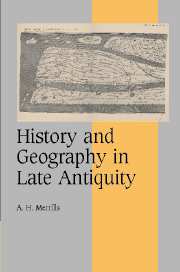1 - Orosius
Published online by Cambridge University Press: 24 July 2009
Summary
As was typical in late antique and early medieval writing, the Spanish priest Paulus Orosius opened his Historiarum adversus paganos libri septem with a firm declaration of his own incompetence as a historian. In place of the declarations of linguistic shortcomings or rhetorical ineptitude which surface frequently in contemporary modesty topoi, Orosius adopted an extended metaphor in which he compared himself to a dog. A dog, he reminds his audience, is always loyal to its master and would instinctively display its perpetual obedience. Because of love alone, a dog confronts the enemies of its owner and seeks to protect him from harm. As he points out elsewhere in the same work, a dog could scarcely hope to exist without the guidance of its master. The image is one of many entertaining authorial asides within the Historia, but has been seen as a particularly apt one in its intended depiction of Orosius' relationship with his own mentor, Augustine of Hippo. Writing in the shadow of one of the most influential thinkers of the western world, and acutely conscious of the expectations upon him, Orosius has frequently been cast as an enthusiastic and well-meaning author, but one who could scarcely reflect with justice the sophistication of his teacher's work.
If Orosius' writing is unlikely ever to garner the attention earned by Augustine, his own legacy was hardly insubstantial.
- Type
- Chapter
- Information
- History and Geography in Late Antiquity , pp. 35 - 99Publisher: Cambridge University PressPrint publication year: 2005
- 3
- Cited by



